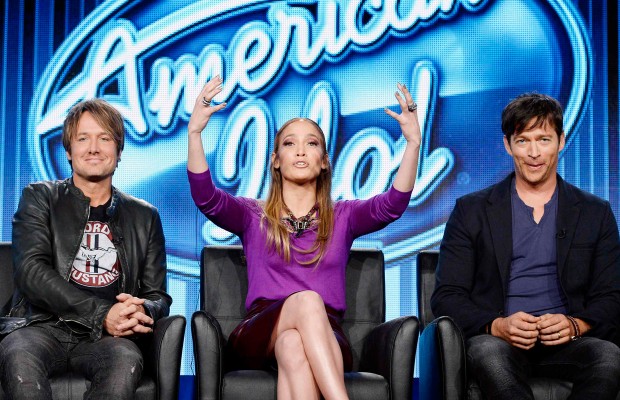There’s something very strange about the new season of “American Idol” (Fox, 8 p.m.) that begins tonight with the usual series of auditions, tonight in Austin and Boston.
Nobody expected having Randy Jackson missing from the judges’ panel would make so much difference. But removing the guy who was mostly known for catch phrases and guffaws has also severed the last remaining tie of the judges panel to the show’s earliest days.
It was long ago when Simon Cowell, who nearly single-handedly made the show with his brash, sometimes rude, but always honest assessments, left the show for his own “The X Factor.” Paula Abdul was gone before that.
Since then, it’s largely been a succession of familiar recording artists — a format that has certainly worked well on “The Voice.” So here’s the newfangled artist-only judges panel for “Idol” — Keith Urban, a deceptively insightful judge from the world of country; Jennifer Lopez, returning to the show after her place was taken by stars like Mariah Carey and Nikki Minaj (who bickered with each other but provided that star power that toppled some devoted contestants).
The new element is no wild card like Minaj or Steven Tyler of Aerosmith. It’s Harry Connick Jr., who contestants make clear they don’t know. He’s a pretty accurate music critic, though his egghead statement on pentatonic scales goes over everybody’s head, judges included, and helps nobody.
And while there is some rapport between them as they meet the usual array of singers, they are all pretty much a dull bunch too.
Or, as Ryan Seacrest, the announcer who is now the only person who has been there every season, said as he tried to speed-summarize things as an “American Idol” panel was about to start earlier this week at the TV Critics Association summer press tour in Pasadena: ” They’re fun. They get along. It’s going to be great.”
But, I asked Seacrest, does getting along really make good TV? Does it help find the best singers?
“I think when you watch a show, you want to see people having fun and having a laugh,” he said. “I mean, this group here definitely does that. They take the job very seriously, but we have so much fun doing it, and I think that definitely shines through. You guys got a chance to see the first episode, and it shines throughout all of the auditions, and it will be spectacular once we get to go live.”
Jackson, for his part, is still around a bit, in a new role, producer Trish Kinane says.
Jammed in between Hollywood Week and live shows is a new “Randy Jackson Workshop.”
As she explains it, “kids who got through, but before the live shows, go through a series of sort of education, if you like, where they can discover things about themselves and we can teach them things. So it might be about how to choose a song, what sort of artist are you, what’s your style, how do you want to look, are you worried about the emotional pressure this process is going to have on you. Or even physically, how do I look after my voice? And we’re going to have lots of different experts in these fields to talk to the kids and interact with them and listen to what they say. And Randy is very much putting this together because he’s been through it for 12 years. He’s seen all these kids come and go, and in a very sort of caring yet informative way, Randy’s got a lot to offer, and I think during this process, he’ll be able to really give something to the kids.”
If it’s all about the kids developing themselves as artists, Kinane says, “Randy can help them do that,” adding that “there will be a lot of dialogue between the judges and Randy this season.”
